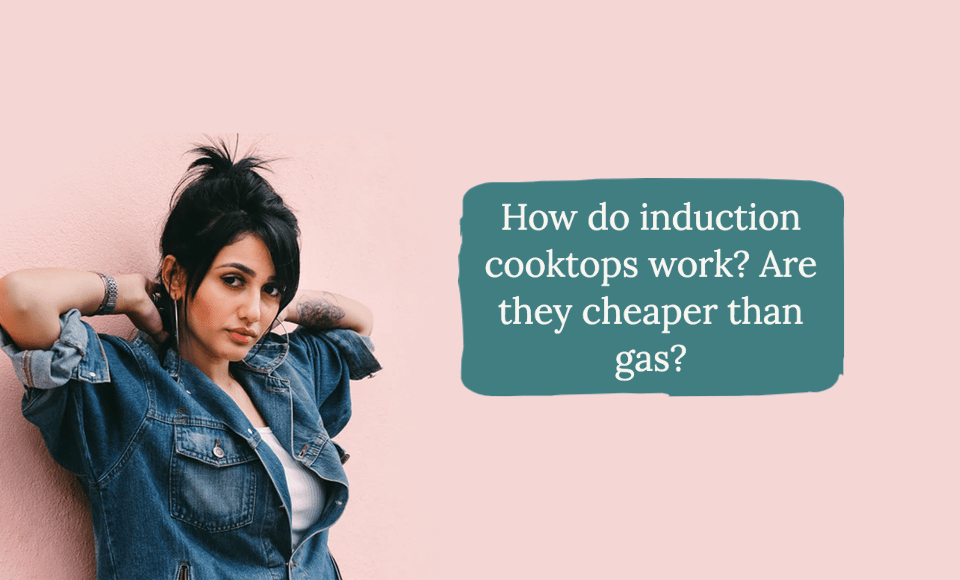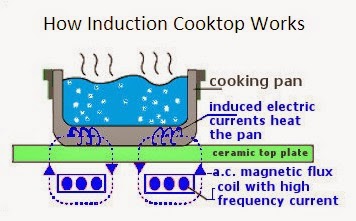In an induction stove there is a copper coil under the ceramic cooking plate, whereas a particular type of inductive vessel is placed on the plate. When alternating current (AC) is passed through the coil, oscillating magnetic field is formed. As per physical law of induction this “induces” electric current. The current that passes into the metallic vessel heats up the vessel due to resistance in the metal, and the vessel in turn cooks up the food in it. (See, diagram below.)
Comparing this to a gas stove, the flame of a stove wastes certain amount of thermal energy in heating up the air along with the vessel. During tests the most efficient induction cooker took 2.58 minutes to boil a specific quantity of water, whereas the same quantity of water took 5.36 minutes to reach the boiling point on a gas stove. Thus, induction cooker may very well turn out to be a cost saver.
Keep in mind of course, that the cost of electricity should be factored in. It might very well turn out that your neighborhood gets much cheaper gas than electricity. But in most cases, induction stove tops will in fact save you money and will be easier to operate as well. Their speed and loss of heat is much more efficient than standard gas stoves.
A few tips you might want to know before getting into induction cooking: Stainless Steel cookware works better with induction stoves, whereas copper, aluminum, and glass cookware does not. Also, induction cooktops do not slowly keep heating a pan or pot. Instead, they keep it at a certain temperature, determined by your setting. This is very different to cooking on a gas stove; where a low or high flame does the same thing in different intervals of time.
Do not drop heavy items or dishes on the induction stove. This can and most certainly will crack the surface. Also, be sure to use flat-bottomed cookware on your induction stove, as rounded cookware tends to slide around and leave unremovable scratches on the surface. Lastly, don’t leave any items on the stove that you pick up by hand. If you leave a spoon on the stove and then later pick it up, you will burn your hand.

